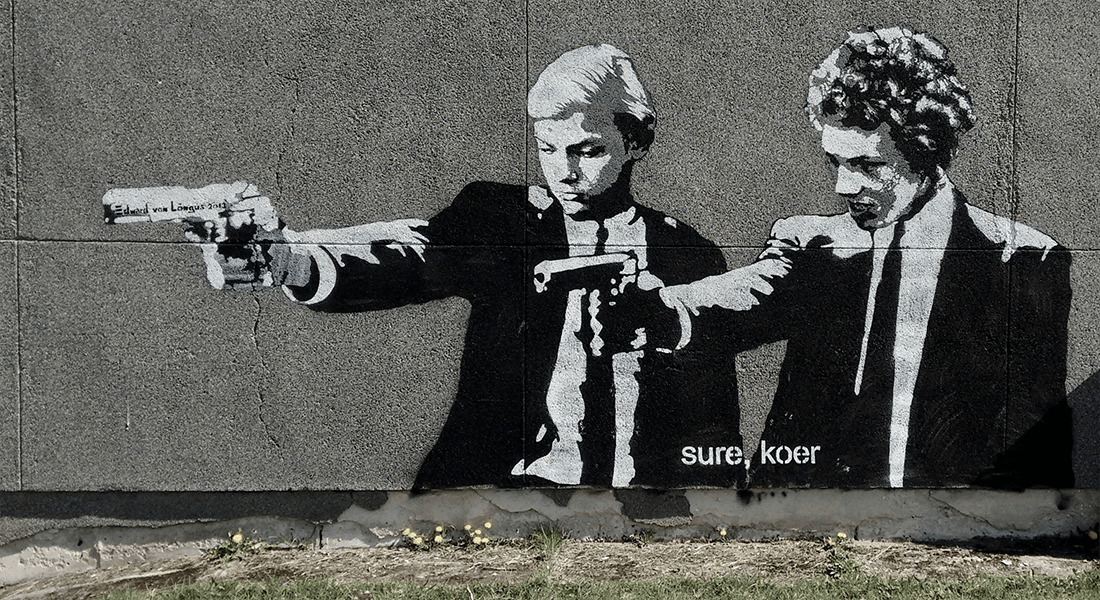RITUAL DETERRENCE
Ritual Action: Making Deterrence Matter in International Security and Memory Politics
Deterrence is not a relic of the Cold War, but a newly urgent feature of contemporary international relations, as Russia’s war against Ukraine highlights only too well. But how is deterrence made to matter in international politics and what does deterrence do politically for the communities that practice it? How are credible threats and commitments accomplished in international security and memory politics, for example by international alliances (such as NATO), and national memory laws? How do we know whether our attempted dissuasion of an opponent has actually worked, if the proof of deterrence’s success is nothing much happening – for the would-be challenger is refraining from the feared action? What explains the persisting political appeal of deterrence as an international conflict management strategy despite its indeterminate success rate and exorbitant material and political costs – particularly in case of nuclear deterrence?

RITUAL DETERRENCE investigates deterrence through the lens of ritual theory, to understand its political and psychological effects in international relations. It explores the role of ritual action in making deterrence effective, affectively charged and credible in the eyes of its practitioners. The research will be based on a set of in-depth qualitative case studies investigating historical and contemporary contexts: nuclear deterrence in NATO-Warsaw Pact relations during the Cold War, NATO-Russia deterrence dynamics in the post-Cold War era; USA-Russia cyber and hybrid deterrence relations; USA-China deterrence relationship in the post-Cold War era, and mnemopolitical deterrence in Eastern Europe.
The goal of the project is to foster the understanding of ritual action in international politics through the case of deterrence. Empirically, the project pursues systematic cross-cultural and cross-domain research on deterrence as a multi-modal social practice. In delivering a new description of the practice of deterrence and an overhaul of the theory of deterrence, the project seeks to offer a comprehensive rethinking of the performance, credibility and the presumed effect of deterrence. Tracing and historicising the interaction ritual chains of deterrence will generate crucial knowledge about how deterrence performances enact and legitimise political communities.
RITUAL DETERRENCE aims to provide a systematic, sociological and comparative research on deterrence as a social practice across different dimensions (military, political-diplomatic, legislative) and types of deterrence (conventional, nuclear, cyber, hybrid) on crucial contemporary (NATO-Russia, US-Russia, US-China; memory laws in Eastern Europe) and historical cases (NATO-Warsaw Pact).
The study combines discourse and practice analysis with expert interviews, participant observation of military exercises and wargaming, encompassing both direct and extended deterrence along traditional and emerging domains of deterrence. Data will be collected through in-depth interviews with experts and practitioners (diplomats, military, and policy-makers). There will be participant observation of summits and bilateral meetings, large-scale military exercises, public ceremonies, force posture shifts, military training and war simulations, content analysis of contextual data. In addition, there will be discourse analysis of pertinent documentation, debates and archival evidence.
Gustafsson, Karl and Maria Mälksoo (in press) Memory-political Deterrence: Shielding Collective Memory and Ontological Security through Dissuasion. International Studies Quarterly.
Mälksoo, Maria (forthcoming in 2024) NATO’s New Front: Deterrence Moves Eastward. International Affairs, Special Issue on ’NATO at 75’ (March).
The symbolic space of the sea: mythologising a nation, performing an alliance
Mälksoo, Maria, 26 Jul 2022, The Sea and International Relations. de Carvalho, B. & Leira, H. (eds.). Manchester: Manchester University Press.
Chapter in Book/Report/Conference proceeding › Book chapter › Research › peer-review.
A ritual approach to deterrence: I am, therefore I deter
Mälksoo, Maria, Mar 2021, In: European Journal of International Relations. 27, 1, p. 53-78 25 p.
Contribution to journal › Journal article › peer-review.
Ritual Reverence to Deterrence in Cyberspace
Mälksoo, Maria, 15 Feb 2021, 3 p. Brussels : EU Cyber Direct.
Other contribution › Commissioned.
Rituals of world politics: on (visual) practices disordering things
Aalberts, T., Kurowska, X., Leander, A. & Mälksoo, Maria, 1 Sep 2020, In: Critical Studies on Security. 8, 3, p. 240-264 24 p.
Contribution to journal › Journal article › peer-review.
Prof. Maria Mälksoo, Principal Investigator
Dr Cameron Hunter, Postdoctoral Research Fellow
Mariia Vladymyrova, Doctoral Researcher
Dr Thomas Fraise, Affiliated Researcher (postdoctoral level)
Prof. Thierry Balzacq, Sciences Po, Center for International Studies, Paris, France
Dr Xymena Kurowska, Central European University, Department of International Relations, Vienna, Austria
Dr Jorg Kustermans, University of Antwerp, Department of Political Science, Antwerp, Belgium
Dr Amir Lupovici, Tel Aviv University, School of Political Science, Government and International Affairs, Tel Aviv, Israel
Prof. Jennifer Mitzen, Ohio State University, Department of Political Science, Columbus, Ohio, USA
Prof. Iver B. Neumann, Fridtjof Nansens Institute, Oslo, Norway
Prof. Juha A. Vuori, Tampere University, Faculty of Management and Business, Tampere, Finland
Prof. Harald Wydra, University of Cambridge, POLIS and St. Catharine’s College, Cambridge, UK
Funded by
RITUAL DETERRENCE is funded by the European Research Council (ERC) Consolidator Grant (ERC-2021-COG)
Project number: 101043468
Project period: 2022-2027
Views and opinions expressed are however those of the author(s) only and do not necessarily reflect those of the European Union or the European Research Council. Neither the European Union nor the granting authority can be held responsible for them.
Contact
Principal Investigator
Prof. Maria Mälksoo
Department of Political Science
Øster Farimagsgade 5, Building 4, 2nd floor, office 04.2.34
Mail: maria.malksoo@ifs.ku.dk
Phone: +45 35 33 11 57

